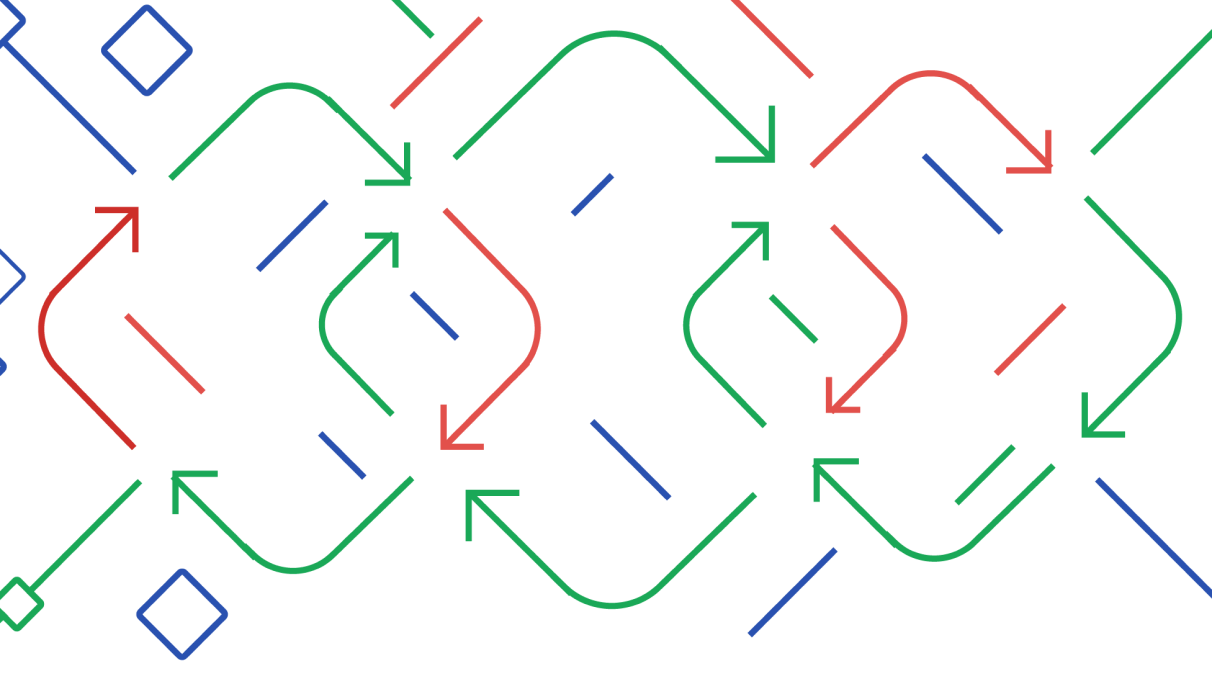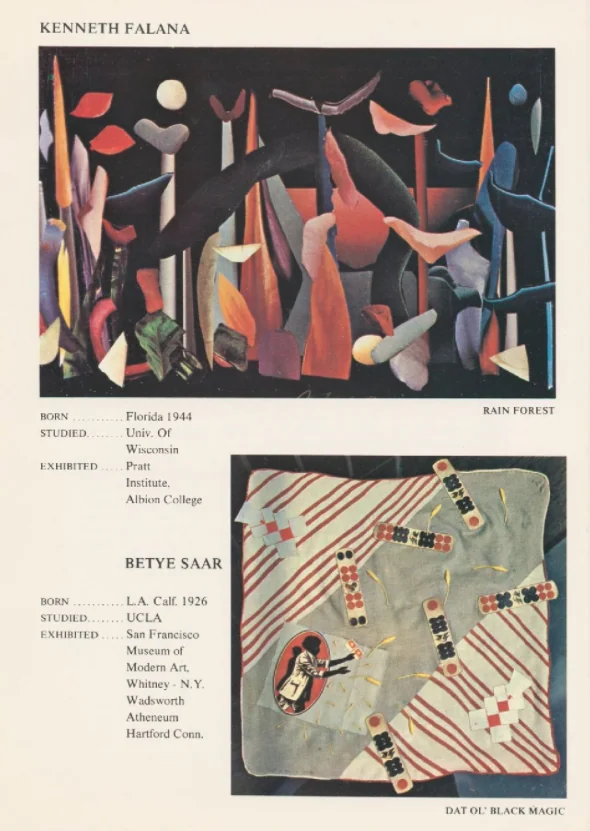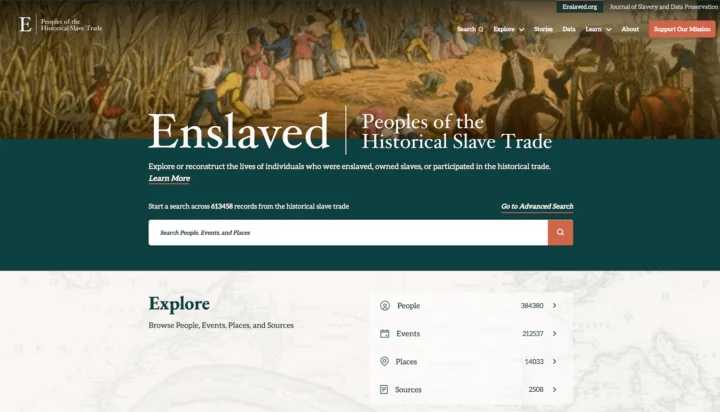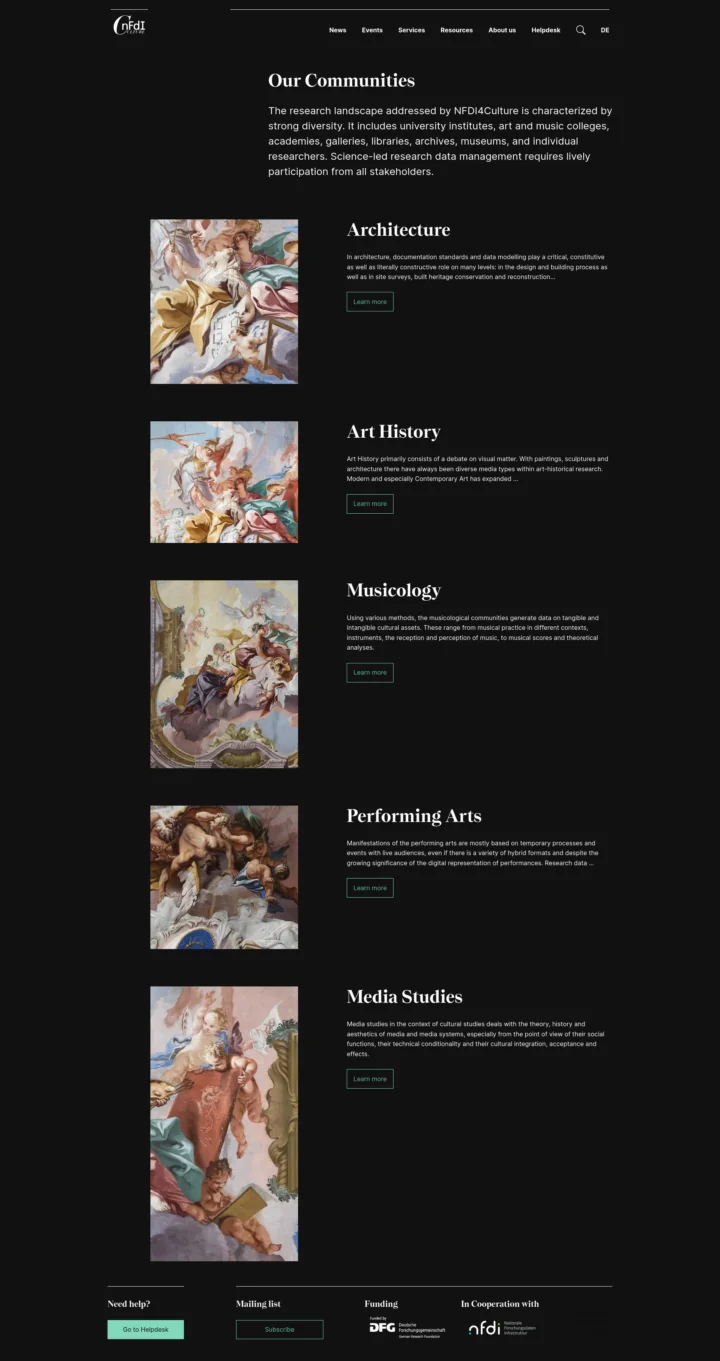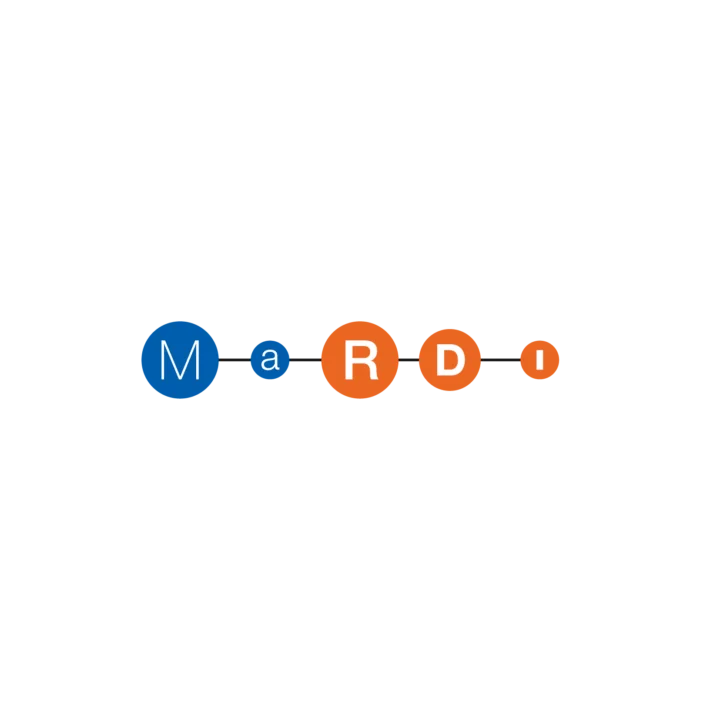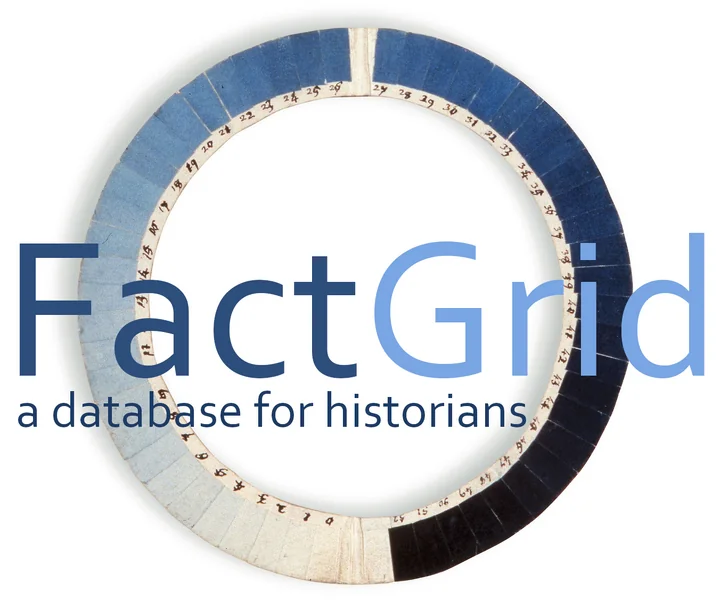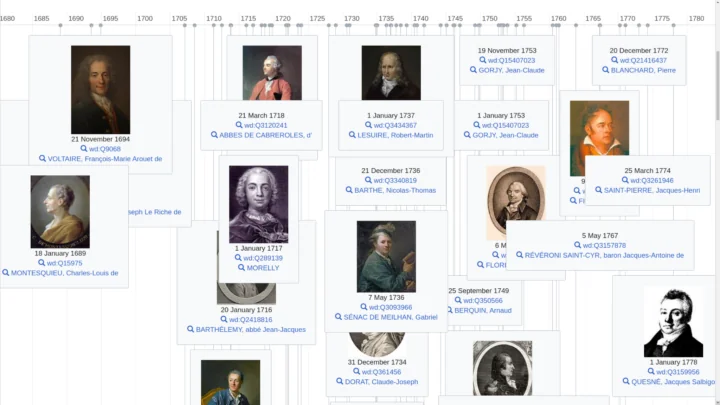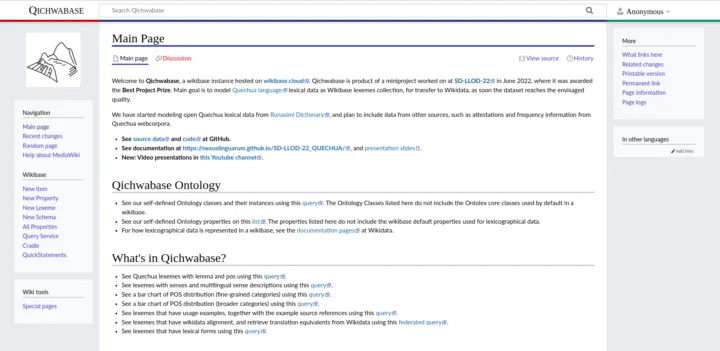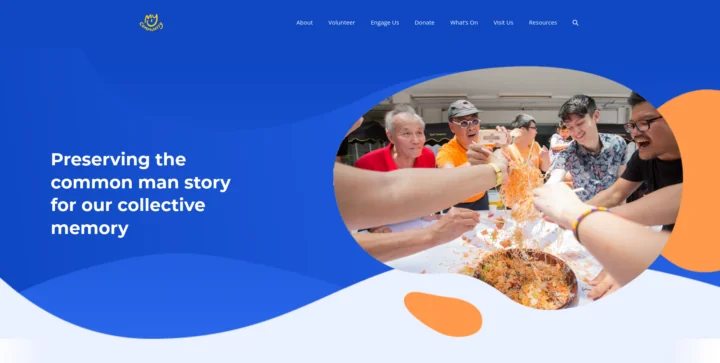Wikibase
Wikibase is an open-source software suite for creating collaborative knowledge bases, opening the door to the Linked Open Data web.
Learn MoreWhy Wikibase?
Who is it for?
Any organization can use it to manage and open up their structured data, and many do—in particular, data-minded GLAM organizations across the world. Here’s a sampling of them and their projects using Wikibase.
Libraries
Libraries frequently find Wikibase well suited to their requirements: it provides librarians with powerful collaboration tools with no need for prior in-depth knowledge of linked open data principles.
Research
Wikibase offers the greenfield conditions often needed by collections with large bodies of custom data in order to create an accurate representation of the unique information in their hands.
Science
We see universities and research groups using Wikibase for its flexibility and ease in collaboration, and we see it helping them bring fascinating bodies of information to light.
Collections
Perhaps no subset of Wikibase’s usership leaps as readily to one’s mind as the scientific community: huge amounts of raw data, multiple collaborators, every project’s data structure wildly different and ripe for federation.
Which Wikibase is right for you?
How to get started?
We’re so glad you asked! Take a look at how others use Wikibase, jump right into our Docker quick start and setup instructions or dive deep into our developer resources.
For Novices
Never heard of Docker? First time with Wikibase? Is your programming experience limited to Hello World? Then this is the place to find friendly, newbie focused documentation as well as links to the WBaaS install suite, a simple step-through process for setting up your own Wikibase.
For Developers
For experienced users only!
Already a skilled developer with experience in databases and/or Docker? Then this is for you. Find all the expert tips and documentation on how to install and manage your own Wikibase instance.
Additional Support
«I’ve tried everything and I’m all out of ideas!» Don’t despair! The world is full of Wikibase users of all skill types and from here you can find access to the community groups that house them and ways to reach out to them. You can also find WMDE recognised service providers, other projects using Wikibase that are keen to help and other useful resources for all skill levels.



